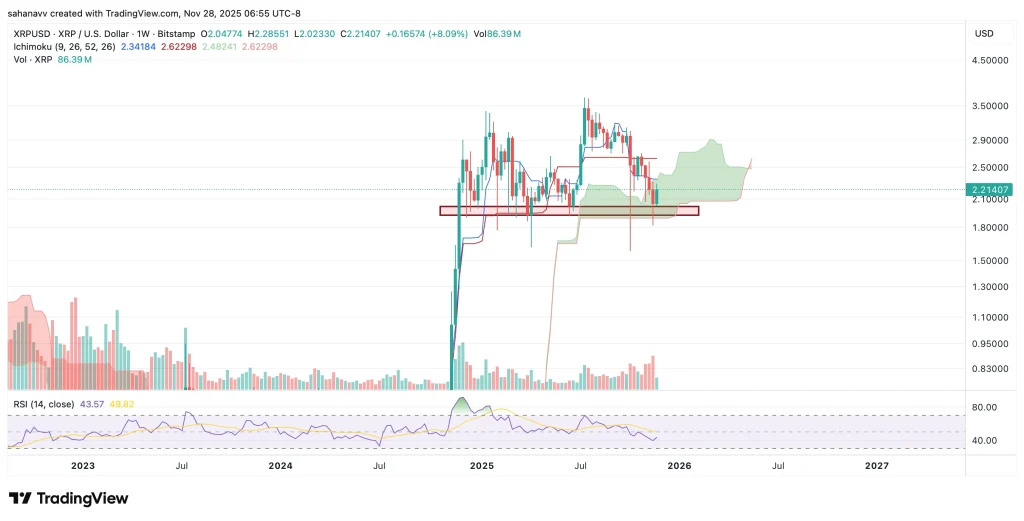Can you inherit cryptocurrency?
Can you inherit cryptocurrency?
In today's era, cryptocurrency is at its peak. With rapid economic growth, more and more people are considering using digital currencies to accumulate wealth and achieve wealth inheritance.
However, many potential investors still have one question: Can you inherit cryptocurrency?
This question may influence the investment choices of potential crypto buyers. For anyone looking to accumulate long-lasting wealth, the inheritability of assets is crucial.
In this article, we will explore the inheritability of cryptocurrencies, how they differ from other assets, and how best to ensure your crypto assets can be passed on to your heirs. If you want to know how this works under European law, there are more detailed explanations available.
Can You Inherit Cryptocurrency?
To best answer this question, we should look at how many jurisdictions define cryptocurrency in terms of taxation and financial management.
For example, in North America, cryptocurrency is mostly defined as a "pure digital asset." What does this mean? In short, it means that, like any other tangible asset (such as real estate), cryptocurrency is considered a real and valuable source of liquidity.
IRS defines it as follows: "The broad definition of digital assets is any digital representation of value that is recorded on a cryptographically secured distributed ledger or any similar technology."
Therefore, like all other assets, cryptocurrency is a form of wealth that you can and should pass on to anyone you designate after your death. While you may not want to think about it now, financial planning for your estate can help your loved ones embark on a prosperous financial path. Cryptocurrency can be an important step in your life journey.
As a clearly defined tangible asset, cryptocurrency has other inheritable values, including:
Cash;
Investments;
Stocks and bonds;
Jewelry;
Cars;
Antiques.
Due to the undeniable value of cryptocurrency, these investments—just like any type of stocks or bonds—can be transferred to new owners after estate settlement and the execution of a will.
After a person passes away, their assets are divided and distributed through the probate process according to the will. If there is no will, a court-appointed estate administrator will distribute the assets according to local laws.
Currently, only six states mandate inheritance tax, which means if you live in any of these states, you must consider that part of your cryptocurrency may be seized by the government. Ultimately, your heirs will receive fewer assets. The following states have enacted inheritance tax legislation:
Iowa;
Kentucky;
Maryland;
Nebraska;
New Jersey;
Pennsylvania.
However, the specific details of state inheritance tax regulations vary. For example, all states except Pennsylvania and Nebraska exempt children and grandchildren from inheritance tax. Exemptions differ, so be sure to understand local regulations in detail when planning your cryptocurrency distribution.
Additionally, when planning your asset distribution, it is essential to accurately recognize the differences between cryptocurrency and other assets, as well as the specific role of digital assets.
How Cryptocurrency Differs from Other Assets
In the United States, theRevised Uniform Fiduciary Access to Digital Assets Act (RUFADAA) establishes rules and regulations governing digital accounts. If you want to ensure others can inherit your crypto assets, understanding these rules is crucial.
As mentioned, cryptocurrency is not explicitly defined as currency. Instead, it is legally regarded as a digital commodity. This also means that, unlike liquid assets, the beneficiaries you set for online accounts have more power over your digital assets than anything stated in your will or trust.
This means the ultimate ownership of the account depends on the Terms of Service Agreement (TOSA) you accept when conducting cryptocurrency transactions.Your cryptocurrency wallet service provider or custodian has unique rights to the account, depending on your state's RUFADAA status and the TOSA.
Service providers may offer full or partial access, or provide a data dump of the required information. Whether your heirs can access your digital assets depends entirely on the plans and agreements you have made in managing your cryptocurrency.
Therefore, safeguarding your private keys is crucial. Without these keys, you may permanently lose access to your cryptocurrency.
Unlike physical assets, if your heirs do not have the keys, the value of your cryptocurrency wallet may not be recoverable. While you can coordinate with service providers to obtain account information, this depends entirely on the agreements you have signed and whether your crypto passwords are available.
Ensuring your crypto assets are inheritable requires proper planning and attention to detail.
How to Ensure Your Crypto Assets Can Be Inherited
For your heirs, ensuring the inheritability of your cryptocurrency assets will greatly reduce their stress. After all,dealing with a deceased loved one's financial situation is already very challenging. It requires comprehensive consideration of assets, beneficiaries, estates, trustees, and wills, and this process can be time-consuming and exhausting.
To ensure your crypto assets can be inherited, you need to take steps while you are alive to make the inheritance of these currencies as straightforward as possible.
You can follow these steps to turn your cryptocurrency into someone's inheritance:
Track Your Crypto Keys.
As mentioned, whether your heirs can access your crypto accounts via your keys is crucial for them to control these assets. Whether you track keys in a digital crypto wallet or transfer the data to a hardware wallet in the form of an encrypted external hard drive, make sure these keys are easy to locate.
Track Transactions and Taxes
The way you manage your crypto assets will determine the taxes you owe. For example, if your cryptocurrency appreciates significantly at the time of your death, your heirs may be able to enjoy this appreciation without paying taxes.
However, if you sell these assets before your death, it will trigger a taxable event. Track all transactions to ensure taxes have been paid.
Update Your Legal Documents
Ensure your will and trust documents fully reflect your wishes and comply with evolving regulations. For example, RUFADAA has established new rules regarding fiduciary access to digital accounts. Adjust your will and other legal documents to avoid potential issues.
Stay Informed About Local Regulations
Following the previous step, make sure you stay up to date on all new regulations related to cryptocurrency, estates, and inheritance. These regulations will depend on your country/region or state and determine how your cryptocurrency is inherited.
Consider How Inheritance Tax Plays a Role
Finally, do not overlook how inheritance tax will affect what your heirs receive. As digital assets, your cryptocurrency may still be considered part of your overall estate, so in states where these regulations apply, inheritance tax will still need to be paid after your death. Stay informed about inheritance tax rules in your area to better plan for the future of your digital assets.
Why Inheriting Cryptocurrency Is Key to the Future of Money
Cryptocurrency has always been seen as the democratization of financial opportunity. Ina system where the wealthy often get richer due to various tax loopholes and multiple income streams, the expansion of cryptocurrency can play a significant role in creating more social and economic mobility for people of lower economic status.
Especially in today's era, many cryptocurrencies can be acquired with a small investment. Accumulating these assets and planning for the future can provide you with the tools to support your family in achieving generational financial security. Understand how cryptocurrency inheritance works, then develop a comprehensive plan to safeguard your family's digital wealth for the future.
See more Web3 news... Download the Techub News APP

Scan the code to download the Techub APP for more Web news
PreviousRecommendations
Disclaimer: The content of this article solely reflects the author's opinion and does not represent the platform in any capacity. This article is not intended to serve as a reference for making investment decisions.
You may also like
No wonder Buffett finally bet on Google
Google holds the entire chain in its own hands. It does not rely on Nvidia and possesses efficient, low-cost computational sovereignty.

HYPE Price Prediction December 2025: Can Hyperliquid Absorb Its Largest Supply Shock?

XRP Price Stuck Below Key Resistance, While Hidden Bullish Structure Hints at a Move To $3

Bitcoin Price Prediction: Recovery Targets $92K–$101K as Market Stabilizes
